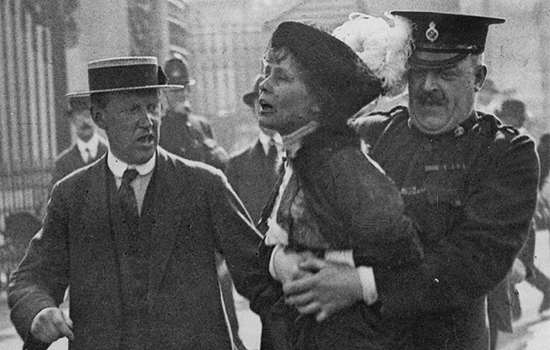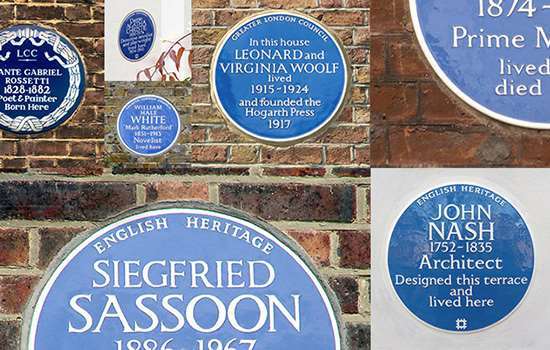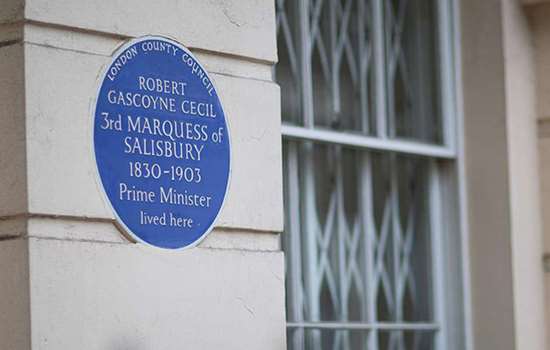MALLIN, Harry (1892-1969)
Plaque erected in 2018 by English Heritage at 105 Regency Street , Pimlico, London, City of Westminster
All images © English Heritage
Profession
Policeman, Boxer
Category
Law and Law Enforcement, Sport
Inscription
HARRY MALLIN 1892-1969 Policeman and Olympic Boxing Champion in 1920 and 1924 lived and worked here
Material
Ceramic
Harry Mallin was the first boxer to successfully defend an Olympic title in any weight division, and one of Britain's greatest-ever boxers. He is commemorated with a blue plaque at Peel House in Pimlico, where he spent most of his working life as a policeman.
EARLY LIFE
Henry William – known as Harry – Mallin was born in Hoxton but the family moved to Hackney Wick in his infancy. As a boy Mallin joined the Eton Manor Boys’Club, which was based on Hackney Marshes. He was successful at several sports, including rowing, football and cricket, but it was at amateur boxing that he excelled. He was coached by, among others, the Olympic lightweight champion of 1908, Fred Grace, who was another Eton Manor old boy. In his working life, Mallin started out as a storekeeper, but in 1914 he joined the Metropolitan Police and was based successively in Tower Hamlets, Grays Inn Road and Bow Street. He was stationed at Peel House, 105 Regency Street, Pimlico from 1923 until at least 1939, during which time he won his record-breaking second Olympic gold medal, in 1924.
BOXING CAREER
After several boxing successes at the novice level he won the London City police reserve competitions in 1915 and 1916. Posted to the Rosyth shipyard in Scotland during the First World War, Mallin suffered a serious leg injury that needed 73 stitches, but fought his way back to fitness to take the Amateur Boxing Association (ABA) title at middleweight in 1919. He boxed under the banner of the Metropolitan Police Athletic Club ‘E’ Division and held the ABA title for five consecutive years, a record that has been equalled (by Mallin’s younger brother Fred, among others) but never bettered.
OLYMPICS
Mallin’s greatest triumphs in the ring were at the Olympic games. At Antwerp in August 1920 he beat the Canadian George Prud'homme on points to take gold, having bested two Americans and another Canadian on his way to the final. The Eton Manor newsletter, reporting his triumph, noted drily that in his day job, ‘he has not had a ‘single drunk’ who wants to fight him’. Mallin retained the Olympic title in controversial fashion at the 1924 game in Paris. His quarter-final opponent, a local favourite named Roger Brousse, was dubiously judged to have won on points, despite Mallin having shown the referee bite marks on his arm and chest left by the Frenchman during the bout. The decision was later overturned and Brousse disqualified. The English press had a field day, accusing Brousse of ‘sampling the unroasted human beef of Old England’. Undeterred by this fuss, Mallin disposed of a Belgian boxer with some aplomb in the semi, to reach a final in which he out-pointed his British team-mate Jack Eliot. Mallin injured his left hand in his Olympic endeavours, however, and he was forced to retire from boxing. He walked away from the sport undefeated in approximately 350 amateur bouts.
LATER LIFE
Mallin managed the British boxing teams in the Olympic games of 1936 and 1952, and achieved the distinction of delivering the first ever BBC television sports commentary – on an England-Ireland boxing match at Alexandra Palace – in 1937. A lifelong bachelor, Mallin was allowed to continue with the Metropolitan Police past the normal retirement age in 1947, and finally left the force in 1952 with the rank of sergeant-instructor, after 37 years’ service with ‘exemplary’ conduct.
In retirement he retained strong links with amateur boxing and was a life vice-president of the ABA, but in the final stage of his life he suffered a stroke and the amputation of the leg he had injured years before. Harry Mallin died on 8 November 1969 in a Lewisham nursing home.
Nearby Blue Plaques
More About Blue Plaques



